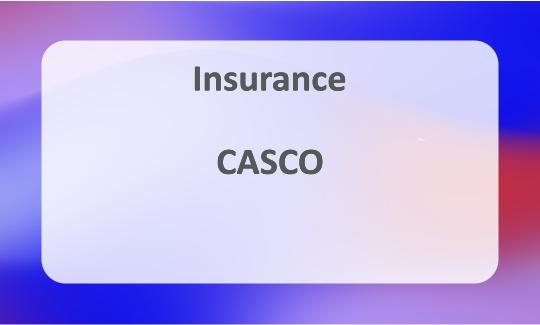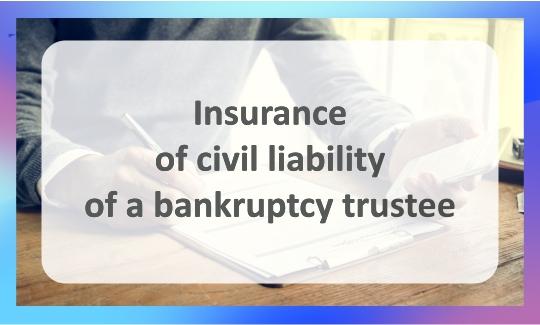What do I need to know about MTPL?

Good drivers, if they know anything about MTPL, have never resorted to insurance companies. The main thing is that the policy is always in the glove compartment of the car. But what to do in case of a claim?
MTPL is a mandatory civil liability insurance policy for vehicle owners. The peculiarity of MTPL is the compensation of losses and damages caused to another car, life and health of passengers. MTPL insurance rates are set by the state and it is forbidden to drive on the road without MTPL insurance.
Universality and compulsory insurance
The most important thing to know about the policy of MTPL insurance is that it regulates compensation for losses and damages that you, not the other party, caused to third parties - the vehicle, life and health of passengers who were in it. By insuring your third party liability, if you are at fault, you get rid of the burden of compensating for the damage caused. Losses caused by your actions to the other party must be compensated by the insurance company.
As for you, your car, property, life and health, MTPL has nothing to do with them. You will have to pay for the damages you have suffered personally, out of your own pocket. If you also want to protect your car from damage and theft, you need to buy a comprehensive insurance policy.
Every driver is required to buy or at least be included in a MTPL policy. This rule applies even if you are simply driving your car from the dealership to your home or place of registration (the exception is if the MTPL policy implies an unlimited number of people who have the right to drive the car).
Without an MTPL policy you not only have no right to drive on the road (otherwise you will be fined from 5 to 8 times the minimum wage), but you will not be able to register your car at the traffic police. In addition, you will earn serious trouble if suddenly there will be an accident with your participation, and CMTPL policy you will not be able to present.
When driving a car, you should always carry the original policy with you, as well as your driver's license and car documents. If you have a policy, but you forgot it at home, for example, the inspector has the right to send the vehicle to a parking lot, where you can pick it up only by showing the policy.
Benefits of CMTPL insurance
The law on MTPL insurance regulates the standards of compensation to the party who suffered losses as a result of an accident or other insured event. These include the maximum amount of CMTPL insurance payments, within which the insurance company must pay monetary compensation to the injured party or restore the property to its original condition. You can read more about the principles of formation of indemnity payments under a CMTPL policy in the Guide article "CMTPL Payments".
The law also provides a number of conditions under which damage caused by your fault cannot be compensated under an MTPL policy. For a full list of limitations of your MTPL policy, see the Guide article "What MTPL insurance won't protect you from".
Duration
An MTPL policy is usually for one year, and the minimum policy period can be as short as three months. And if you are the owner of a vehicle registered abroad, but you plan to drive it on the territory of the Russian Federation, it is possible to conclude an insurance policy for the temporary use of the vehicle, but not less than 15 days.
Cost of MTPL policy
The price of the MTPL insurance policy is determined by the driving experience, the make and capacity of the vehicle, the region in which you use the car and other calculated parameters. For each of the indicators is set its increasing or decreasing coefficient, the value of which is strictly regulated by government regulations. You can find out how the price of MTPL insurance is determined in the article "What does the cost of MTPL insurance depend on" and you can use the MTPL insurance calculator to calculate and issue the policy yourself.
How does MTPL insurance work?
Originally, the law of MTPL insurance implied one way of calculation: the injured party in a traffic accident had to go to the insurer of the person who caused the damage. Recently, however, legislative amendments were made to the procedure of obtaining insurance compensation in order to simplify the procedure of obtaining compensation in case of an insured event. According to the amendments, if the accident did not cause personal injury and a number of additional conditions are met, you can apply for compensation directly to your insurer - the so-called "direct indemnity". In addition, if the property damage does not exceed 50 thousand rubles, there is no need to call the traffic police - in this case the European protocol is used.
Each insurance company has 20 calendar days to consider a claim for compensation, and it is established that for each day of delay the insurer must pay a penalty in the amount of 1/75 of the key rate of the Central Bank of the amount of damage.
The CMTPL limit means that the amount of coverage may not fully cover the damage you cause. If you demolish a bus stop, a billboard, or crash into a storefront while driving, you will have to pay the entire amount above the MTPL limit out of your own pocket. That's why all insurance companies offer optional Automobile Collision Liability Insurance (ACLI) - so you can pay if the damage exceeds the MTPL limit.
At first glance, it would seem that there are far fewer pitfalls in electronic CMTPL insurance than in selecting and calculating voluntary collision insurance. Even if this is true, you should not be careless in choosing an insurance company and trust the first one that comes along to draw up a policy. The degree of reliability of the insurer is of no interest to anyone except you, because after the accident you will have to compensate the injured party - with or without the help of the insurer.
Tip: If you want to save money on MTPL insurance, choose a policy with a limited number of insured persons.
CASCO (from the Italian word casco - helmet) is the insurance of a vehicle against risks that may arise during the operation of the vehicle. "Full CASCO" means insurance against all possible risks, while "partial CASCO" covers only some risks. CASCO insurance means only insurance of the vehicle itself and does not include insurance of liability to third parties, insurance of the driver and passengers, property (cargo insurance) transported in the vehicle. Objects of insurance The subject of the motor hull insurance are means of land transport - trucks, cars, special cars, motorcycles, trailers and some other vehicles owned by legal entities or natural persons, including additional equipment and facilities, which are in the possession of the Insured on the basis of ownership, use or disposal. The insurance is provided at rates that depend on the type of vehicle, its age, value, type of use and storage conditions. This type of insurance also…
Insurance of civil liability of a bankruptcy trustee
Insurance of civil liability of the liquidator Insurance of civil liability of a bankruptcy trustee (receiver, manager, liquidator) for damage that may be caused in connection with the performance of his duties is a type of insurance, the subject of which are property interests, not in conflict with the law, related to compensation of damage caused by the insured or another person, whose civil liability to third parties is insured, as a result of the professional activity of the bankruptcy trustee (receiver, manager, liquidator). This type of insurance provides for the insurer's obligation to pay indemnification to a third party for a fee (premium, insurance payment, insurance premium) established by the insurance contract in accordance with the terms…
Agricultural insurance (Insurance of agricultural products) is a type of insurance where the subject of the insurance contract are property rights, not contradicting the law, related to compensation of losses incurred by the Insured or another person designated by the Insured in the insurance contract while growing, harvesting agricultural crops and perennial plantations, growing (breeding), fattening (keeping) farm animals, poultry, rabbits, bee colonies and fur-bearing animals, growing, breeding, catching (harvesting) fish and other aquatic living resources, and other livestock products. This type of insurance…


